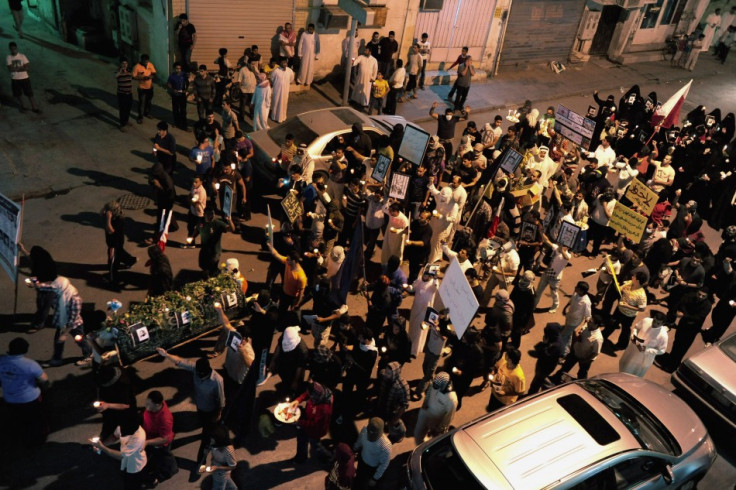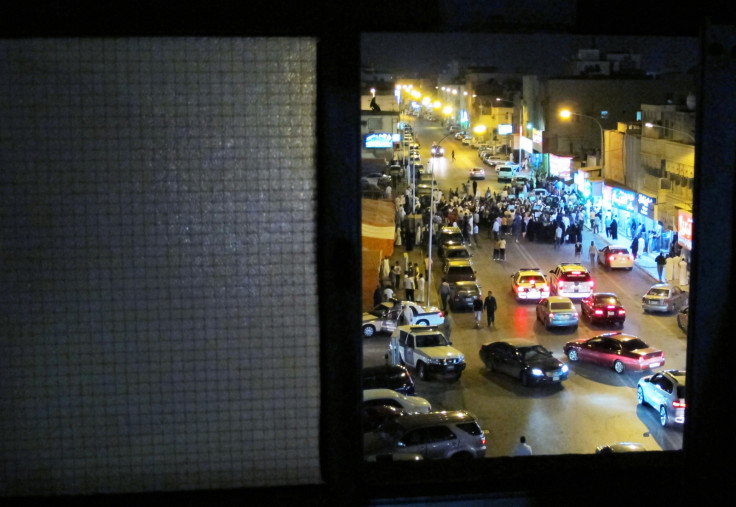Saudi suicide bombing: Shi'ite stronghold Qatif was a Sunni terrorist target waiting to happen

Qatif is the heartland of Saudi Arabia's restive Shia population and just weeks ago activists in the city told IBTimes UK that threats from Sunni groups as well as increasing government repression in eastern Saudi Arabia were inflaming tensions.
Jafar Al Shayeb, a member of the Qatif municipal council and a human rights activist, spoke following the shooting dead of a Saudi Arabian police officer and the injuring of three others in a gun battle in al-Awamiyah, close to the site of today's suicide bombing.
He recalled November 2014 when eight Shia worshippers were killed in an attack on a shrine in the city of al-Ahsa and said that following the deaths, rhetoric from Wahhabi preachers was increasing. He predicted that the situation for Saudi Shia was about to get worse.
"[The attack in al-Ahsa] comes as a result of the sectarian discourse that is going on in the region. It is a language of hatred [and] it is getting worse because of the war," said Al Shayeb.
Sadly, the suicide bombing on Friday in the village of al-Qadeeh – which has killed up to 30 people – demonstrates just how prescient those comments were. Like in Iraq, Yemen and Syria, Shia Muslims have been targetted, most likely from those that consider them heretics.
In Saudi Arabia, this tension has only been fuelled by the war in Yemen, which pits the Sunni Wahabbi Saudi government against the Shia Houthi rebels, who are widely perceived to be backed by Iran, the Shia powerhouse in the Middle East and Riyadh's main rival.
In March 2011, thousands of Shia took to the streets in Qatif, Saudi Arabia, to protest decades of discrimination and religious and political repression, beginning an uprising that was met with a violent crackdown, a wave of arrests and cases of police firing on unarmed protesters.
Since then, 27 have been killed and more than 250 imprisoned, according to local Shia leaders and human rights activists in the towns and cities of eastern Saudi Arabia, who fear rising sectarianism fuelled by Riyadh's war against Shia Houthi rebels in Yemen.
There are 2.7 million Shia in Saudi Arabia, making up 12% of the population, with most living in al-Ahsa and al-Qatif districts in the country's eastern province, which also contains the bulk of the kingdom's oil. Ruled by a Sunni monarchy and under a strict interpretation of Islam, Wahabbism, Shia are often portrayed as heretics or agents of Riyadh's major rival, Iran.

A 2009 report by Human Rights Watch alleged widespread discrimination against Saudi Shia, including heavy restrictions in the state education system, where Shia students were forbidden from learning about their religion and told they were unbelievers by Sunni teachers.
It added that judges often banned Shia witnesses during trials because of their faith and barred Shia from taking jobs in government ministries or the military.
"The Saudi government has long regarded its Shia citizens through the prism of Wahhabi dogma or state stability, branding them as unbelievers or suspecting their national loyalties," said Sarah Leah Whitson, Middle East director at Human Rights Watch.
It was anger over this situation that led to the Shia uprisings of 2011, which continued into 2012 and resulted in the deaths of 20 protestors.
A prominent Shia activist, Sheikh Nimr al-Nimr was detained and then sentenced to death on terrorism charges as well as "waging war on God".
The Saudis imposed road blocks around the major flash points and information about the uprising only leaked out intermittently on YouTube, with videos showing hundreds of Shia carrying placards that called for the downfall of Saudi Arabia's ruling Al Saud family and anti-government slogans daubed on the walls of houses and state buildings.
It is not yet clear who is responsible for the attack in al-Qadeeh, but it comes at a time when the threat to Shia Muslims is at its worst for a decade. If Islamic State (formerly known as Isis) do, as expected, claim responsibility it will be their first attack in Saudi Arabia and mark the spread of their brutal anti-Shia ideology to yet another Middle Eastern state.
© Copyright IBTimes 2025. All rights reserved.






















